Refrigerator Turns On And Off Frequently: Troubleshooting Tips
We may earn affiliate fees for purchases using our links (at no additional cost to you).
Feeling curious about your refrigerator’s strange behavior? Ever wondered why it turns on and off so often?
Join me on a cool exploration to uncover the secrets behind this puzzling phenomenon.
We’ll find out what’s causing it and learn how to keep our fridges in tip-top shape.
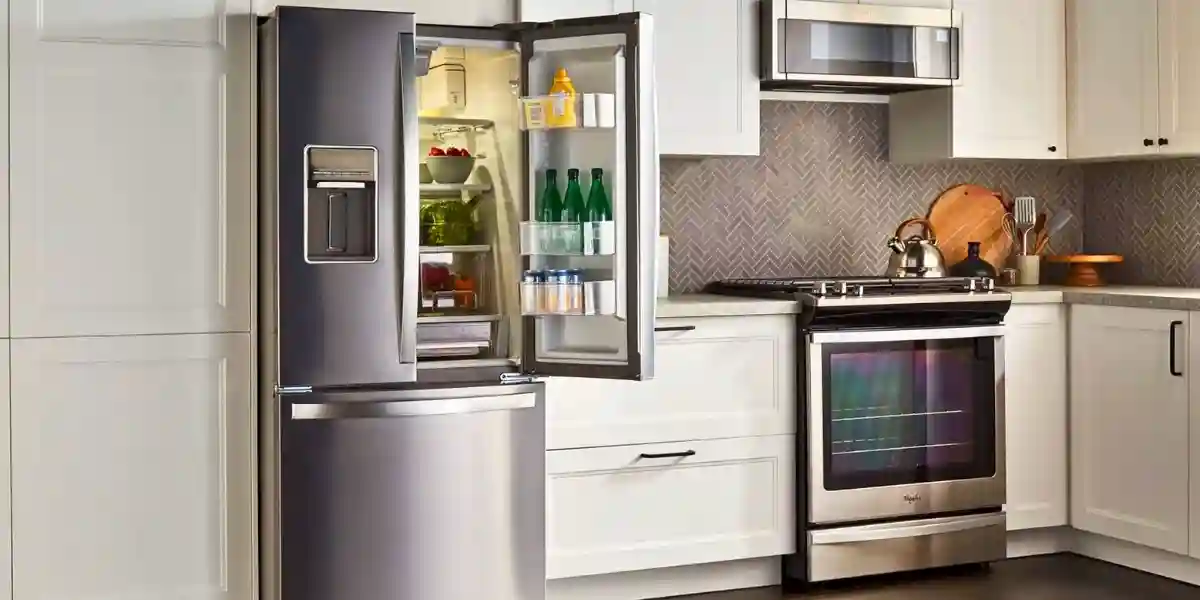
Refrigerator Turns On And Off Frequently
A refrigerator turning on and off frequently is usually due to a faulty thermostat, an unstable power source, or a damaged control board. Checking these components can help identify the problem.
Ensuring they function properly will restore your fridge’s optimal cooling performance and power efficiency.
Common Causes of a Fridge’s Frequent On-Off Cycles
Faulty Thermostat
A thermostat is like the “brain” of the refrigerator. It is a small device that tells the refrigerator when to cool and when to stop cooling.
When you set a temperature, the thermostat ensures that the refrigerator maintains this temperature to keep your food fresh.
However, if the thermostat is faulty, it may give wrong signals. For example, it might think that the refrigerator is too warm when it’s actually too cold, or vice versa.
This can lead to the refrigerator turning on and off more often than it should, as it struggles to reach the temperature the faulty thermostat instructs it to.
Power Source Issues
The refrigerator needs a steady supply of electricity to function correctly. It’s like how you need a steady supply of food to have energy throughout the day.
If there’s a problem with the refrigerator’s electrical connection or with the power source in your house, the refrigerator might not get the electricity it needs.
This can cause the refrigerator to turn on and off unexpectedly, just like you might feel tired and need to rest if you’re not getting enough food.
Defective Circuit Board
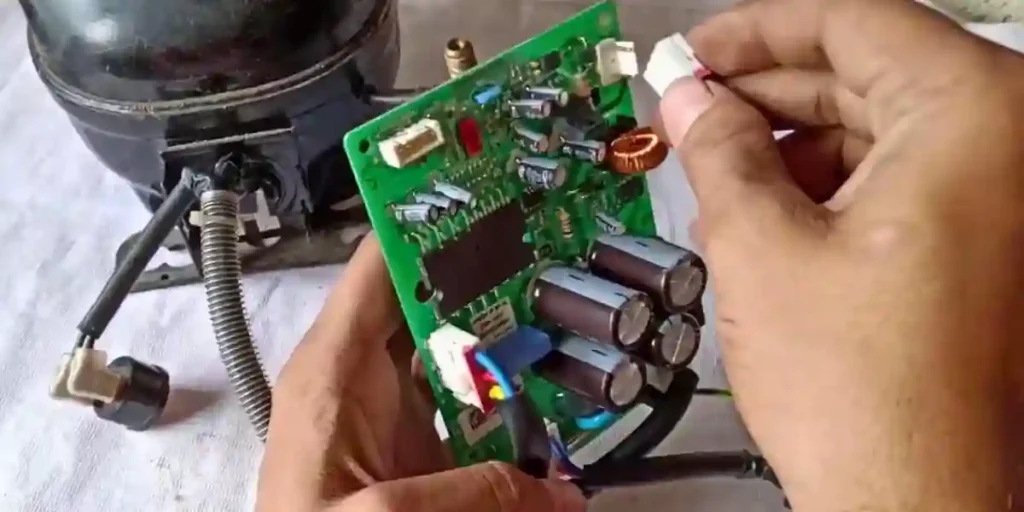
A circuit board is like the “heart” of your refrigerator. It controls many parts of your refrigerator, including the temperature and defrost cycle.
The Adaptive Defrost Control (ADC) board is a particular type of circuit board that controls when the refrigerator should defrost, or melt the ice that builds up inside it. If this circuit board has issues, it can disrupt the normal working of the refrigerator.
This can cause the refrigerator to turn on and off at unusual times, just like if your heart was having trouble, your whole body might not work properly.
Condenser Fan Malfunction
The condenser fan helps keep the refrigerator cool by blowing air over the condenser coils. You can think of the condenser fan as a fan that cools you down on a hot day.
If the fan stops working properly, the coils can become too hot. This can cause the compressor, a key component that cools the refrigerator, to overheat.
When the compressor overheats, it may result in the refrigerator turning on and off frequently to try and manage the heat.
Dirty Condenser Coils
The condenser coils are like the “lungs” of your refrigerator. They release heat from inside the refrigerator to the outside.
If these coils become covered in dust and dirt, they also can’t release heat.
This can make the compressor overheat since it’s working harder to cool down the refrigerator.
When the compressor overheats, the refrigerator might turn on and off more often to try to handle the extra heat.
Compressor Relay Problems
The compressor relay is like a “messenger.” It passes messages from the thermostat to the compressor.
If the thermostat tells the relay that the refrigerator is too warm, the relay tells the compressor to start cooling.
But if the relay is faulty, it might tell the compressor to start and stop at the wrong times. This can make the refrigerator turn on and off more frequently than usual.
Overload Protector Issues
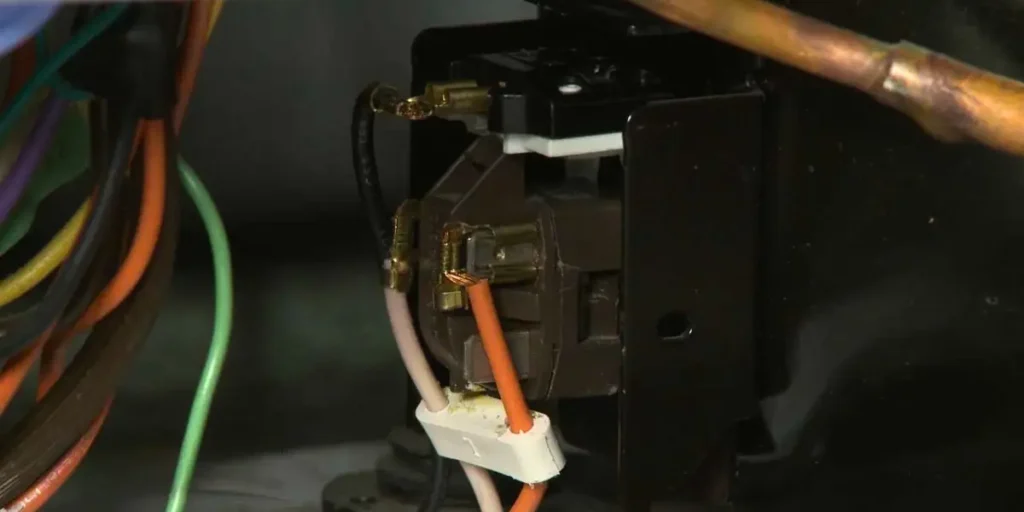
The overload protector is a safety device, kind of like a seat belt. It protects the compressor from getting too much electricity at once, which could damage it.
If the overload protector is not working correctly, it might stop the compressor from working even when it should be.
This can cause the refrigerator to turn on and off frequently as it tries to cool itself without the compressor’s help.
Compressor Motor Damage
The compressor motor is like the “muscles” of your refrigerator. It does the hard work of pumping refrigerant through the refrigerator to cool it down.
If the motor is damaged, it might not be able to do its job correctly. This can lead to the refrigerator acting strangely, including turning on and off more often than it should.
How to Diagnose Your Refrigerator: Step-by-Step Guide
Step 1: Spot a Faulty Thermostat
The thermostat acts like your refrigerator’s “brain”. It helps maintain the set temperature. However, if it’s faulty, your fridge may turn on and off frequently.
Step 2: Check Power Source
Just like you need food for energy, your fridge needs electricity. Issues with the electrical connection can cause your fridge to turn on and off unexpectedly.
Step 3: Investigate Defective Circuit Board
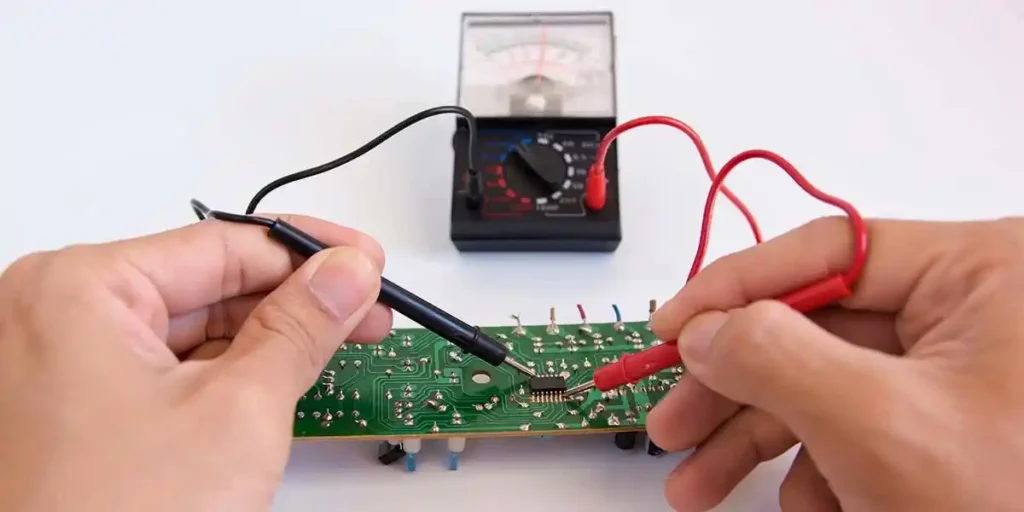
A circuit board, particularly the Adaptive Defrost Control (ADC) board, controls many aspects of your fridge. If there’s an issue with this, your fridge may turn on and off at unusual times.
Step 4: Look for Condenser Fan Malfunction
The condenser fan cools the condenser coils. If it’s not working properly, your fridge may turn on and off frequently to manage the heat.
Step 5: Clean Dirty Condenser Coils
Your condenser coils act like your fridge’s “lungs”. Dirty coils can cause your fridge to overheat and turn on and off more often.
Step 6: Deal with Compressor Relay Problems
The compressor relay is the “messenger”. A faulty relay can cause your fridge to turn on and off more frequently.
Step 7: Handle Overload Protector Issues
The overload protector is like a seat belt for your fridge. If it’s not working correctly, your fridge might turn on and off frequently.
Step 8: Repair Compressor Motor Damage
The compressor motor is like the “muscles” of your fridge. If it’s damaged, your fridge might turn on and off more often.
Step 9: Replace Blown Fuses or Circuit Breaker
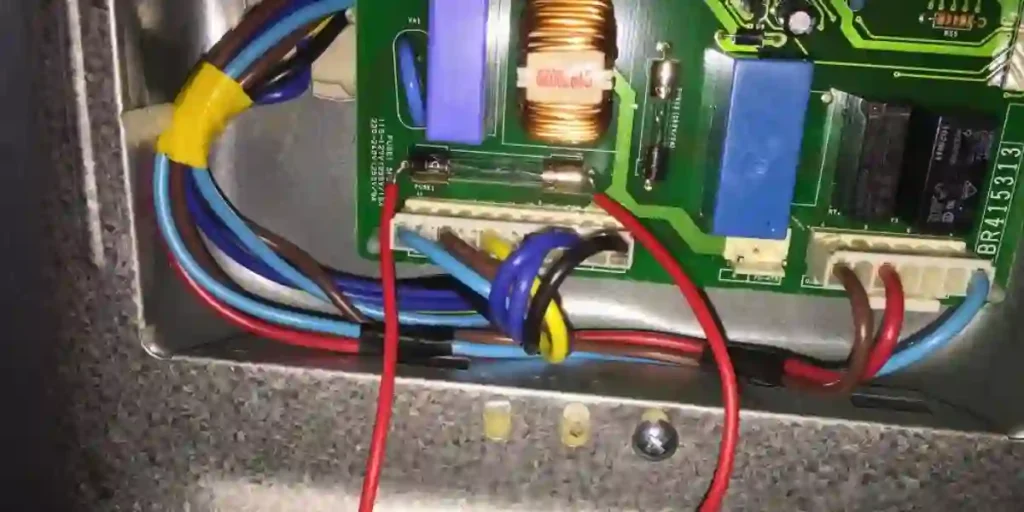
Most fridge problems stem from blown fuses or a faulty circuit breaker. You’ll need to replace these to solve the issue.
Step 10: Fix Broken Motor
A broken motor means your fridge can’t function properly. Replace the motor if none of the other components work.
Step 11: Tighten Loose Electrical Connections
Bent or damaged prongs on the plug or a loose outlet can cause your fridge to turn on and off randomly.
Step 12: Replace a Malfunctioning ADC Board
The ADC board is responsible for defrost timers and compressors. If it’s malfunctioning, replace it.
Step 13: Fix Damaged Thermostat
A broken thermostat can cause your fridge to turn on and off at incorrect intervals. Replace it if needed.
Step 14: Resolve Control Board Concerns
The control board connects most of the internal parts to the power supply. If it’s failing, replace it.
Step 15: Hire a Fridge Repair Expert
If all else fails, consider hiring a fridge repair expert to fix the problem for you. You can use a service like Networx to get free fridge repair quotes from trusted services near you.
Impact of Frequent On-Off Cycles on Energy Efficiency
Wasted Energy and Increased Costs
When a refrigerator turns on, and off frequently, it expends more energy than necessary.
Each time the compressor starts, it requires a surge of power to cool the interior, and this repeated process can lead to wasted energy.
As a result, your electricity bill may soar, causing financial strain.
Wear and Tear on Components
Frequent on-off cycles can cause wear and tear on various refrigerator components. The compressor, in particular, experiences increased stress during these cycles.
Over time, this strain can lead to premature component failure, resulting in costly repairs or even necessitating a replacement.
Reduced Cooling Efficiency
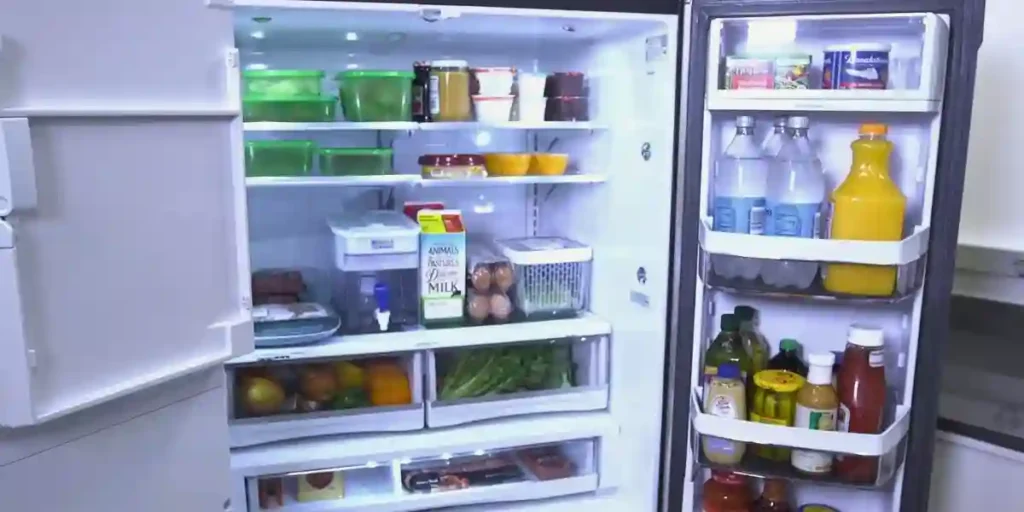
When a refrigerator cycles on and off frequently, it may not have enough time to maintain a consistently cool temperature.
This can lead to temperature fluctuations inside the fridge, impacting food preservation and freshness.
Additionally, your fridge may struggle to reach the desired cooling level, further increasing energy consumption.
Impact on Food Preservation
Fluctuating temperatures inside the refrigerator can affect the quality and longevity of stored food.
Certain perishable items, such as fruits, vegetables, and dairy products, may spoil more quickly, leading to food waste and additional expenses.
Environmental Impact
Excessive energy consumption due to frequent on-off cycles contributes to a larger carbon footprint.
High electricity usage places additional strain on power generation systems, potentially increasing greenhouse gas emissions and negatively affecting the environment.
FAQs
Can Frequent Cycling Affect My Refrigerator’s Lifespan?
How Can I Reduce The On/Off Cycling Of My Refrigerator?
Does Room Temperature Affect The Cycling Of The Fridge?
Should I Be Concerned About Energy Consumption?
When Should I Worry About Frequent Cycling?
Conclusion
Your refrigerator’s frequent on-off cycles might be caused by a faulty thermostat, power source issues, or a damaged control board.
It’s important to diagnose and fix these issues to ensure your fridge operates efficiently.
Taking care of your fridge will save energy, reduce costs, and keep your food fresh and safe.
If you’re unsure how to fix the problem, consider seeking help from a refrigerator repair expert to get your appliance back to optimal performance.